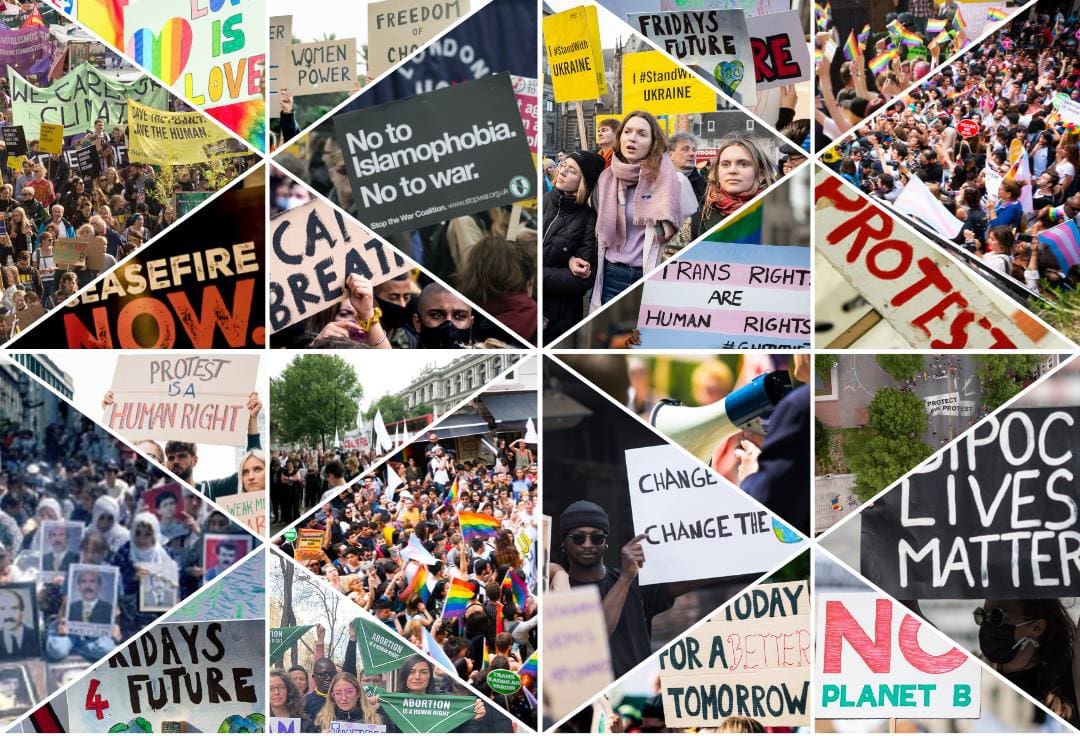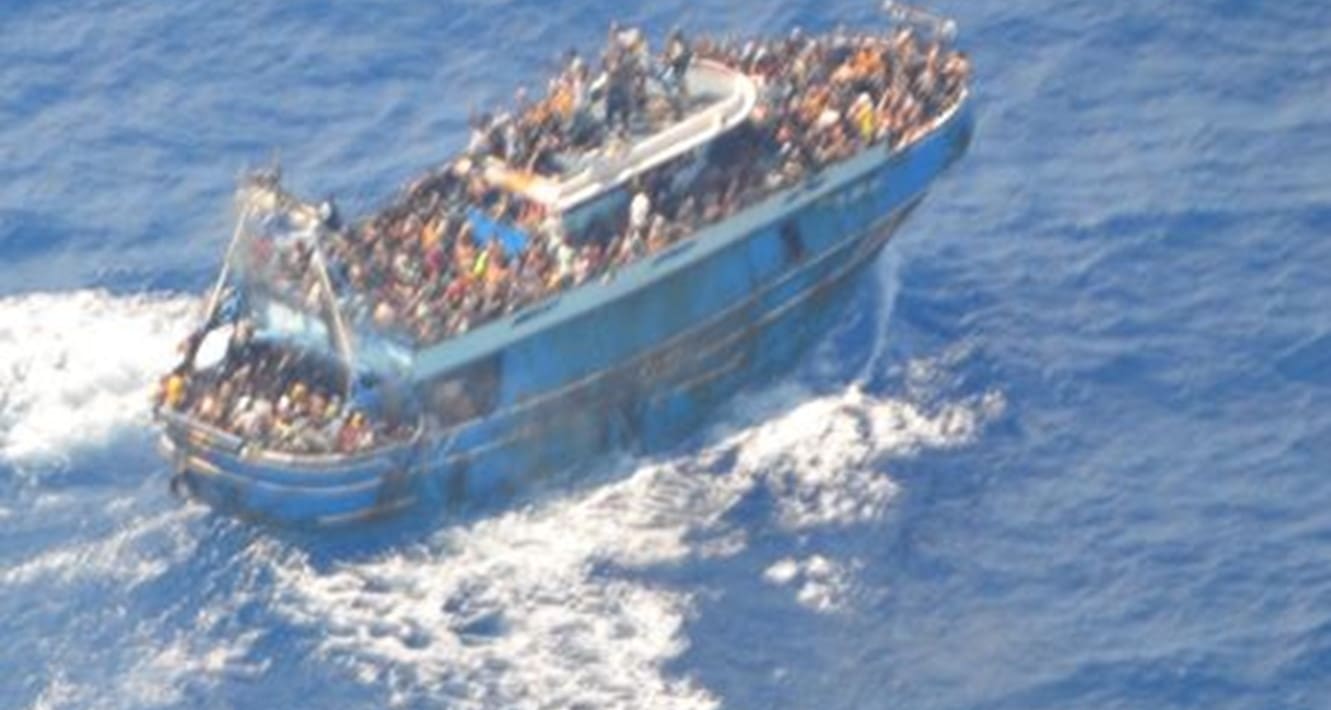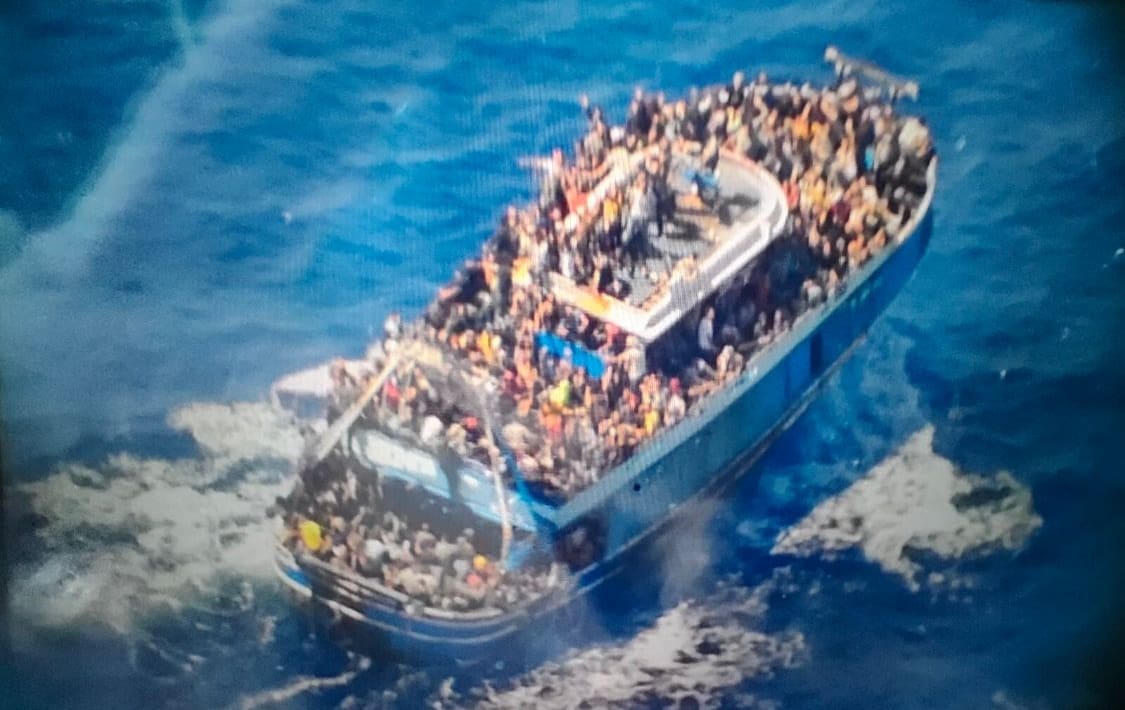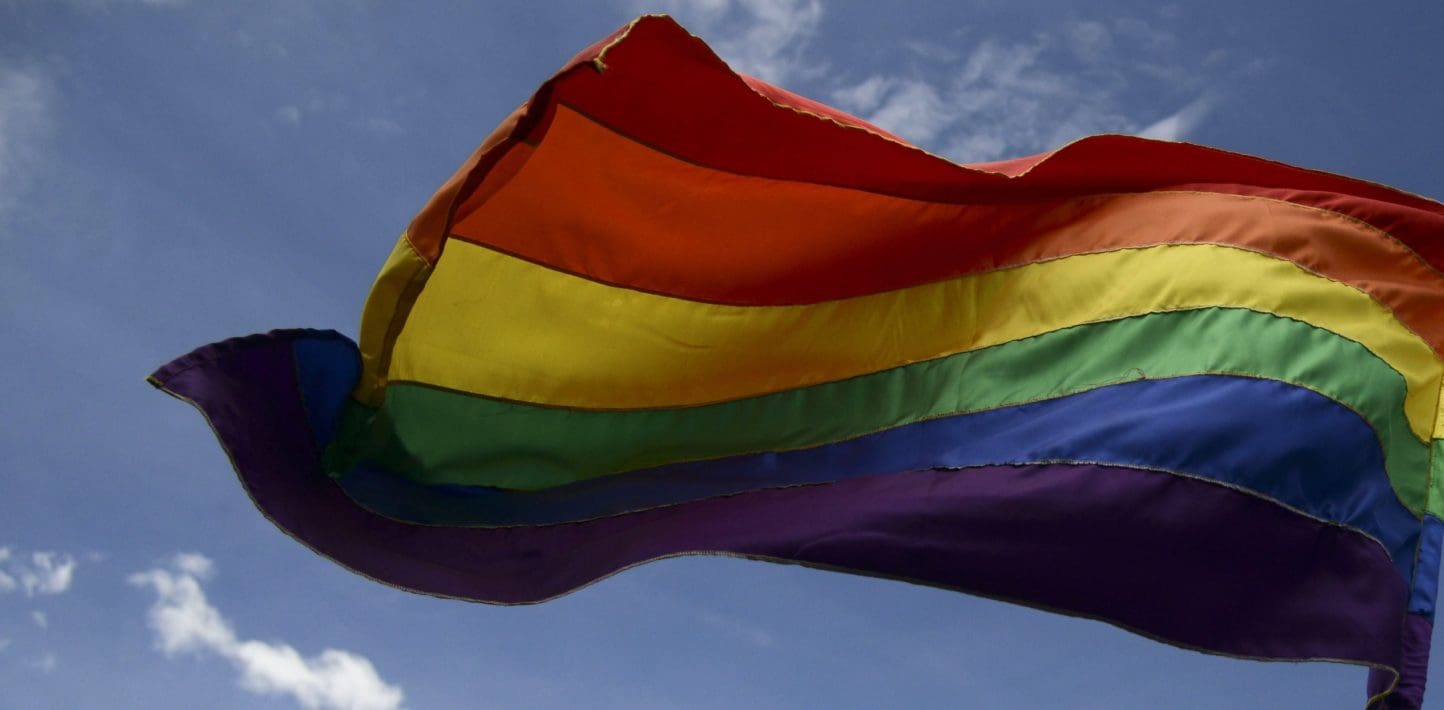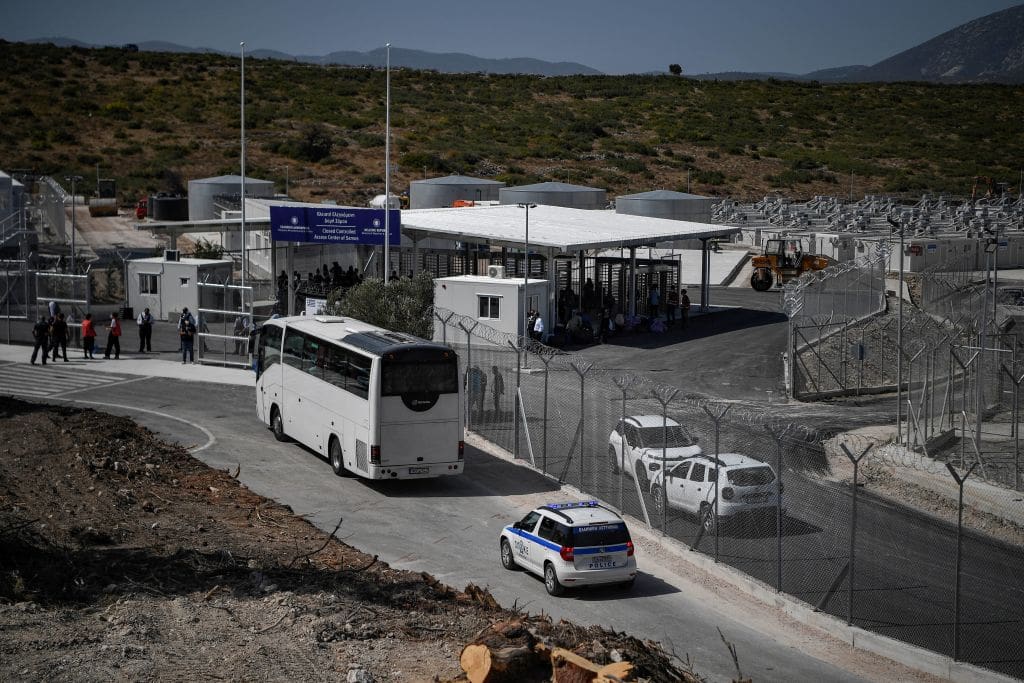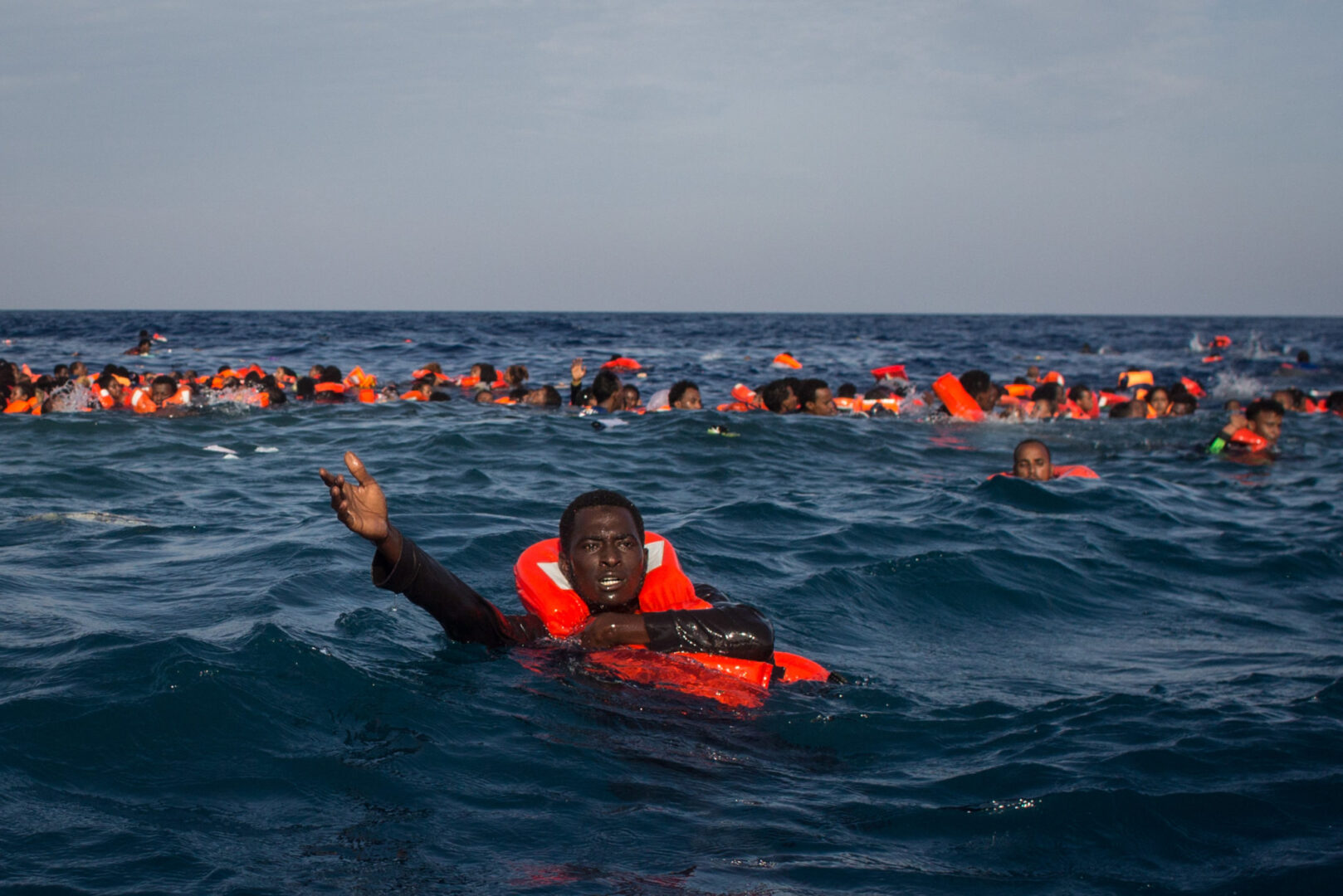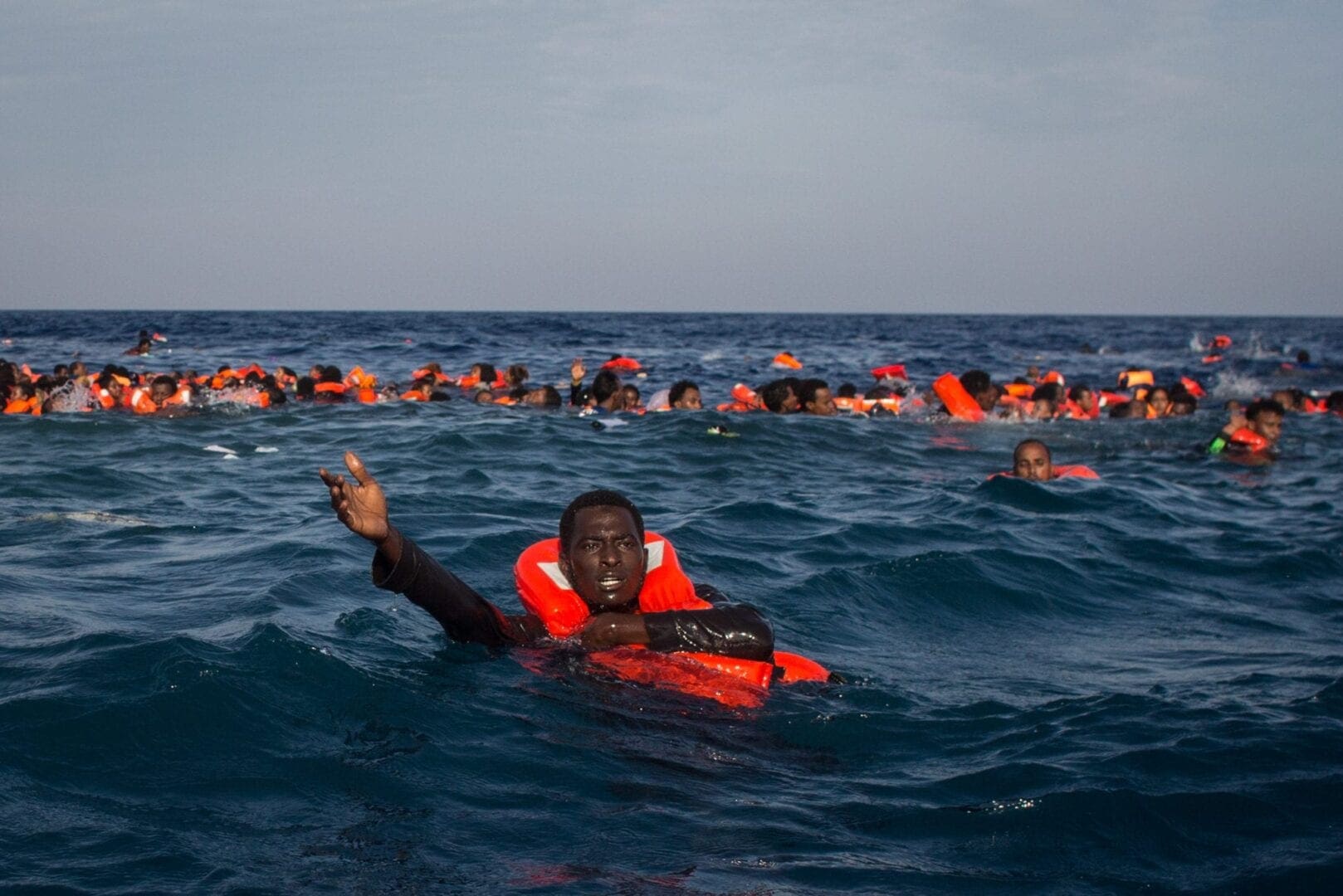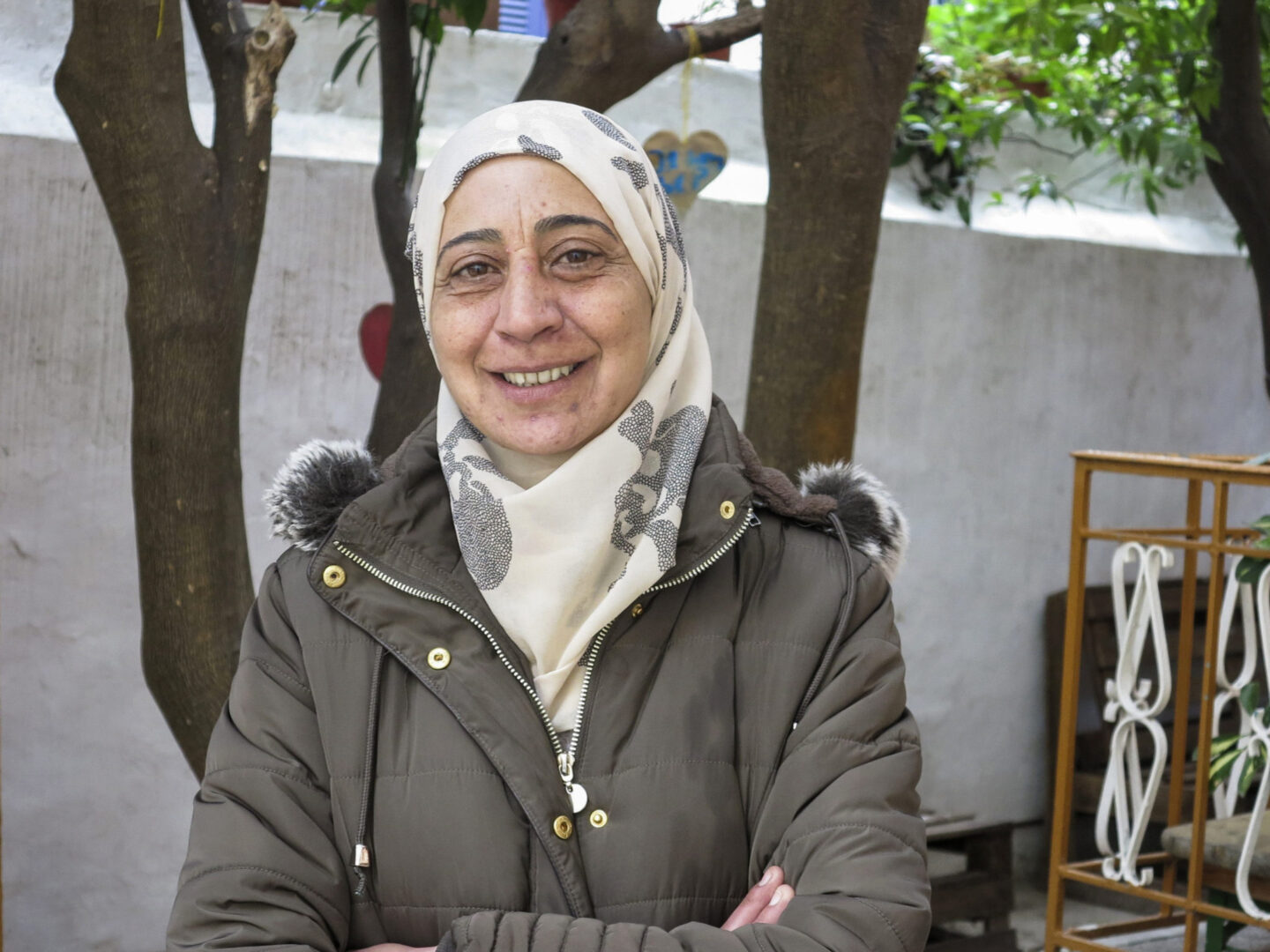The following information is based on the Amnesty International Report 2021/22. This report documented the human rights situation in 149 countries in 2021, as well as providing global and regional analysis. It presents Amnesty International’s concerns and calls for action to governments and others.
GREECE 2021
Reports of unlawful use of force against peaceful protesters persisted. A Roma man was fatally shot during a police chase. Pushbacks and human rights abuses against refugees and migrants continued, despite systematic denials by the authorities. The authorities’ crackdown against NGOs and those working to help refugees continued. Violations of the rights of conscientious objectors to military service persisted. As violence against women escalated, a controversial child-custody bill that would put victims of domestic violence in greater danger was passed by parliament.Background
Greece faced an ecological disaster after wildfires destroyed over 900,000 hectares of forest and farmland.Torture and other ill-treatment
Reports of unnecessary and excessive use of force by the police against peaceful protesters and others persisted. In March, footage showing the unlawful use of force against a young man by a police officer during a Covid-19 document check caused public outrage and prompted many demonstrations. A disciplinary inquiry was ordered and a police officer was suspended from his duties while an Athens prosecutor ordered a criminal investigation. Two protesters who participated in one of the demonstrations in March reported being tortured by police in the General Attika Police Directorate during their questioning and filed a criminal complaint. In April, an Athens court found police responsible for the life-threatening injuries sustained by protester Yiannis Kafkas in May 2011 and awarded him compensation. In September, the authorities lodged an appeal against the decision.Right to life
In October, an Athens court resumed the hearing of the case of two individuals and four police officers indicted for the death of LGBTI activist Zak Kostopoulos in September 2018. During the same month, Nikos Sambanis, an unarmed 18-year-old Roma man died following a fatal shooting by police. A 16-year-old Roma boy, also unarmed, sustained serious injuries. Seven police officers were charged with homicide with possible intent. Calls were made for the authorities to conduct thorough disciplinary and criminal investigations, including into possible racist motives.Refugees’ and migrants’ rights
Pushbacks
Pushbacks and human rights abuses against refugees and migrants at land and sea borders continued, despite systematic denials by the Greek authorities. In June, through the testimonies of 16 victims, Amnesty International reported 21 incidents of group pushbacks to Turkey in 20201, conducted by individuals appearing to belong to law enforcement and individuals in civilian or unmarked clothing. The incidents were estimated to have affected around 1,000 people. Many victims experienced arbitrary detention and ill-treatment, in some cases amounting to torture. None of those interviewed had the opportunity to seek asylum or to challenge their return. The research, consistent with evidence from other reputable actors, showed that pushbacks were Greece’s de facto policy of border management. More pushbacks were documented in the second half of the year. In August, the European Commission declared that the release of additional funding for border control activities in Greece would be conditional on the establishment by the country of an independent border monitoring mechanism. While a new mechanism had not yet been created to this end, the government identified the National Transparency Authority as competent to investigate pushbacks incidents. NGOs, however, contested the independence of this body. Several cases of pushbacks remained pending before the European Court of Human Rights and the UN Human Rights Committee.Access to asylum
In June, the government designated Turkey as a “safe country” for asylum seekers from Afghanistan, Pakistan, Bangladesh and Somalia, as was already the case for Syrians under the EU-Turkey migration statement. The designation means that asylum applications to Greece from these nationalities could now be considered inadmissible and applicants returned to Turkey. This decision disregarded the fact that Turkey had been refusing to accept returns under the EU-Turkey statement since March 2020. It also failed to consider the difficulties facing asylum seekers and migrants in Turkey, including unlawful returns and obstacles in accessing protection.Reception conditions
Sea arrivals continued to decline sharply compared to previous years, leading to reduced numbers of refugees and migrants on the Aegean islands. During the year, at least 86 people who attempted to cross the Aegean were reported dead or missing. After fires destroyed Moria camp in 2020, work began to replace open camps with “closed-controlled island facilities” (KEDN), funded by the EU. From November, on the island of Samos, authorities illegally detained some of the residents of the KEDN by preventing them from exiting the facility. The decision affected asylum seekers without a valid registration document (“asylum card”), including newcomers yet to be issued with one and people with unsuccessful asylum applications. In December, ruling in the case of an Afghan resident of the facility, a local court found the prohibition of exit to be illegal and ordered for it to be lifted. At the end of the year, however, KEDN residents without a valid card continued to be generally prevented from exiting. The reception conditions in the temporary camp of Mavrovouni on Lesvos, where the displaced residents of Moria had been living since the fires, remained a cause for concern.Children’s rights
In January, the European Committee of Social Rights found Greece to be in violation of several provisions of the European Social Charter. The decision focused on the inappropriate accommodation provided for accompanied and unaccompanied migrant and asylum-seeking children and the failure to ensure their protection from harm. The committee also found violations in relation to Greece’s guardianship system, the detention of unaccompanied migrant children in “protective custody”, the failure to provide formal education to children on the islands and the right to health.Right to health
NGOs campaigning for the opening of access to Covid-19 vaccines for undocumented people reported persisting challenges. A legal provision adopted in October expanded the possibilities for undocumented migrants to register for Covid-19 vaccination and obtain the relevant certificate, and introduced safeguards against deportation. In December, a Ministerial Decision allowed civil society actors to administer Covid-19 vaccines to vulnerable people including those who are undocumented.Human Rights Defenders
In March, three UN Special Rapporteurs expressed concerns over new restrictive registration requirements introduced in 2020 for NGOs working with migrants and refugees. In November, years after their initial arrest and release on bail in 2018, human rights defenders Sarah Mardini and Séan Binder together with 22 other members of the NGO Emergency Response Centre International, faced trial in Lesvos on some of the charges brought against them. These included charges of espionage, unlawful use of radio frequencies and forgery arising from their work rescuing and assisting refugees. The trial was adjourned and the matter referred to a higher court; the investigation into the remaining charges against the group remained pending.Freedom of assembly
Greek authorities failed to facilitate, and continued to unlawfully interfere with, the right to freedom of peaceful assembly.2 In late January, the head of police introduced a blanket ban on public outdoor assemblies of more than 100 people citing public health grounds. Several peaceful assemblies were dispersed by the Greek police throughout the year.Discrimination
In April, the Racist Violence Recording Network reported 107 incidents of racist violence as recorded in 2020. Between August and October, hate crimes by members of far-right groups and other individuals against migrants, students and members of political parties were reported in Crete, Athens and Thessaloniki.Conscientious objectors’ rights
Serious violations of the rights of conscientious objectors to military service continued, including repeated prosecutions, fines and arrests. Appeals to the Supreme Administrative Court against the discriminatory rejection of applications for conscientious objector status were pending at the end of the year. The UN Human Rights Committee raised questions over the rights of conscientious objectors – and the punitive and discriminatory “alternative service” – to be considered in the next periodic report of Greece. Greece also received recommendations on the issue in the context of the UPR. In a landmark ruling in December, the UN Human Rights Committee found multiple violations of the ICCPR in the case of conscientious objector Lazaros Petromelidis.Violence against women and girls
During the year, 17 women were murdered by their partners or former partners. Their murders highlighted the problem of domestic violence and brought renewed calls by women’s rights groups for the term “femicide” to be used in public debate and legislation. From January, the Greek #MeToo movement shed light on tens of reports of rape and sexual harassment in the areas of sport and culture where many women spoke publicly about their abuse. Between March and May, women’s and human rights groups called for the withdrawal of a bill on child custody that would place domestic violence victims at greater risk and breach the principle of the best interests of the child. The controversial bill, which became law in May, risked giving perpetrators of violence and abuse access to their victims, and for an extended period of time.Right to health
In early November, as Greece reported the highest daily average of Covid-19 infections since the beginning of the pandemic, health workers’ unions called for more funding and the recruitment of many more permanent staff to strengthen the weakened National Health System. Concerns were raised about the punitive and discriminatory nature of a fine of €100 per month imposed on people over 60 if they did not comply with compulsory vaccination for Covid-19, following the adoption of a legal provision by the parliament in early December.Detainees’ rights
In January, Dimitris Koufondinas, a member of armed group Revolutionary Organization 17 November, began a hunger strike to protest against the government’s decision to transfer him to Domokos prison and not to Korydallos prison in accordance with national legislation. Despite a significant deterioration in his health, the authorities refused to accept his request. In March, Dimitris Koufondinas ended his hunger strike. In late August, the Initiative for Prisoners’ Rights expressed concerns over a reported increase in Covid-19 cases in prisons, limited numbers of healthcare staff, and overcrowded conditions.Relevant Links
- Greece: Violence, Lies, and Pushbacks – Refugees and Migrants Still Denied Safety and Asylum at Europe’s Borders (Index: EUR 25/4307/2021), 23 June
- Greece: Freedom of Assembly at Risk and Unlawful Use of Force in the Era of COVID-19 (Index: EUR 25/4399/2021), 14 July
- For more information visit the Amnesty.org Country page

